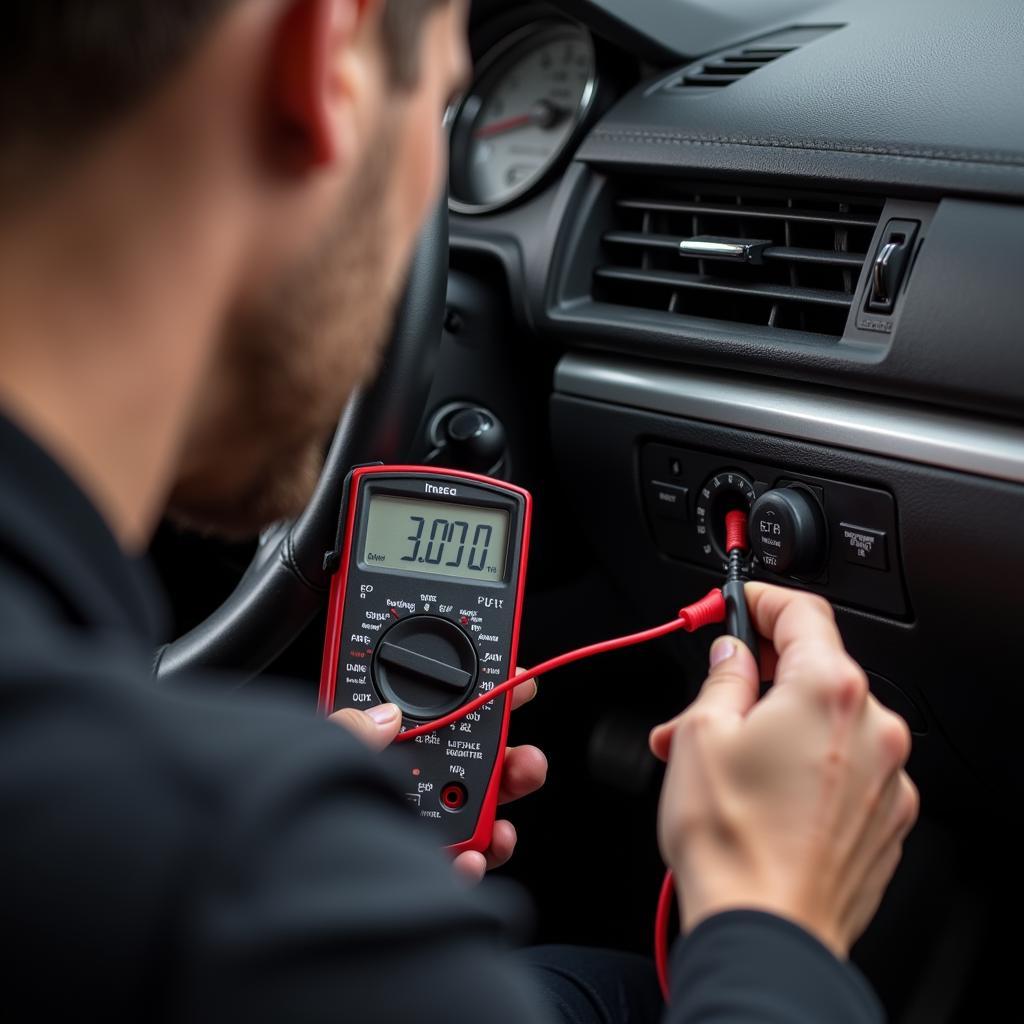Regular car maintenance is crucial for ensuring a safe and reliable driving experience, but it can be expensive, especially when you factor in the cost of certified mechanics. While professional services are always recommended, there are several things you can do to maintain your car’s health without relying solely on a certified mechanic. This guide will provide you with valuable tips and tricks for keeping your car running smoothly without breaking the bank.
Understand Your Car’s Basics
The first step in preventing car problems is understanding the basics of your vehicle. Familiarize yourself with the essential components, their functions, and common issues. This knowledge will help you identify potential problems early on, allowing you to address them before they escalate.
Regular Inspections & Maintenance
One of the most effective ways to avoid major car problems is to conduct routine inspections and maintenance. Here’s a checklist of essential tasks you can perform:
Check Fluid Levels
- Engine Oil: Check the oil level regularly using the dipstick. Top it up if needed with the correct type of oil for your vehicle. Too little or too much oil can lead to engine damage.
- Coolant: Ensure the coolant level is adequate and the mixture is properly diluted. Low coolant can overheat your engine.
- Brake Fluid: Monitor brake fluid levels in the reservoir. Low brake fluid can compromise braking performance.
- Transmission Fluid: Check transmission fluid levels and color. Dirty or low transmission fluid can affect shifting.
Tire Pressure & Condition
- Tire Pressure: Use a tire pressure gauge to check tire inflation regularly. Under-inflated tires increase rolling resistance, fuel consumption, and risk of blowouts.
- Tire Tread: Inspect tread depth to ensure sufficient grip. Worn tires can compromise traction, especially in wet conditions.
- Tire Alignment: Proper wheel alignment is crucial for even tire wear and handling.
Other Key Checks
- Air Filter: A dirty air filter restricts airflow to the engine. Replace it regularly for optimal performance.
- Spark Plugs: Inspect spark plugs for wear or damage. Faulty plugs can cause misfires and reduced engine power.
- Battery: Ensure the battery terminals are clean and tight. A weak battery can cause starting problems.
- Lights: Check all lights, including headlights, taillights, brake lights, and turn signals. Faulty lights compromise safety.
- Wiper Blades: Replace worn blades for optimal visibility in rainy conditions.
Simple DIY Repairs & Maintenance
Many car repairs are relatively simple and can be tackled at home, saving you money on labor costs.
Battery Jump Start
- Connect jumper cables correctly. Red to red, black to black.
- Start the good car.
- Start the dead car.
- Let the dead car run for 10-15 minutes.
- Disconnect cables in reverse order.
Problems with jump starting a car
Replace Air Filter
- Locate the air filter box.
- Remove the old filter and replace it with a new one.
- Ensure the filter is properly seated.
Replace Wiper Blades
- Locate the wiper arm release lever.
- Lift the wiper arm and pull the old blade off.
- Slide the new blade into place and snap it on.
Replace Spark Plugs
- Locate the spark plug wires.
- Use a socket wrench to remove the old spark plugs.
- Install the new spark plugs, tightening them to the correct torque specification.
- Reconnect the spark plug wires.
Preventative Maintenance
Preventing problems is key. Here are some tips for extending the life of your car:
- Fuel System Cleaner: Periodically add a fuel system cleaner to your gas tank to remove deposits and prevent fuel injectors from clogging.
- Regular Oil Changes: Frequent oil changes are essential for engine lubrication.
- Avoid Aggressive Driving: Hard acceleration and braking put extra stress on the engine and components.
- Regular Inspections: Schedule regular inspections at a mechanic to catch potential issues before they become major problems.
Seeking Professional Help
While many repairs can be handled at home, some tasks require the expertise of a certified mechanic. Here’s when you should seek professional help:
- Engine Issues: Unusual noises, reduced power, or smoke from the engine.
- Electrical Problems: Intermittent or faulty electrical systems.
- Transmission Problems: Slipping gears, rough shifting, or transmission fluid leaks.
- Brake Issues: Squealing brakes, spongy pedal, or pulling to one side when braking.
- Suspension Problems: Clunking noises, uneven tire wear, or a bouncy ride.
“It’s better to be safe than sorry. If you’re unsure about a repair, it’s always best to consult a qualified mechanic.”
- Mark Johnson, Certified Master Mechanic
Conclusion
By understanding the basics of your car, performing regular inspections and maintenance, and seeking professional help when necessary, you can significantly reduce the chances of encountering major car problems. Remember, preventative maintenance is key to keeping your car reliable and safe.
AutoTipPro is dedicated to helping you keep your car in top condition. Contact us today for any questions or support!
Contact Information:
Phone: +1 (641) 206-8880
Office: 500 N St Mary’s St, San Antonio, TX 78205, United States
FAQ
Q: How often should I change my oil?
A: Check your owner’s manual for recommended oil change intervals. Typically, it’s every 3,000-5,000 miles or every 3-6 months.
Q: What are the signs of a bad spark plug?
A: Signs include misfires, reduced engine power, rough idle, and difficulty starting.
Q: What are the benefits of using a fuel system cleaner?
A: It helps remove deposits, prevent fuel injectors from clogging, improve fuel economy, and optimize engine performance.
Q: How can I find a reliable mechanic?
A: Ask for recommendations from trusted friends, family, or neighbors. Look for ASE-certified mechanics and read online reviews.
Q: What are some common car problems that can be avoided with preventative maintenance?
A: Common issues include engine overheating, premature tire wear, brake failures, and electrical problems.






Leave a Reply